- Home
- Cynthia Voigt
The Wings of a Falcon Page 17
The Wings of a Falcon Read online
Page 17
The Wolfer studied him.
The man was an enemy. That fact was in his hard face and cold eyes, it was in the stance of his body on heavy legs. The man felt enmity for Oriel and would kill him without a qualm, unless Oriel was worth more to him alive. That was the simple truth of the situation.
Oriel could no more alter the Wolfer’s enmity than he had earned it. He was just going to have to live with it. Unless, of course, the Wolfer killed him, which would be—in a way—the easiest way, and perhaps would even come to seem the best way. But if Oriel had to live with the Wolfer, as enemies, then he was going to have to be as cruel as ice. Sharp, cold, unfeeling—a memory of the way icicles hung off the Damall’s eaves was in Oriel’s mind, and a memory of the numbing killing coldness of the river in early spring, when great chunks of ice floated down it, and a memory of a boat left at the dock in Selby when the freezes came, its wooden ribs crushed by the swelling of the ice, its thin leather skin punctured by the sharp ice, destroyed entirely by the unconcerned ice.
“Speak,” the Wolfer said. “Little.” He pointed at his own chest. “Rulgh,” he identified himself. “King.”
Oriel kept his face expressionless, although he thought of laughing. His eyes must have given him away because the Wolfer narrowed his own cold eyes and looked dangerously close to anger. Oriel shook his head, hastily trying to repair the damage. “King rules over all men,” he said. “Wears crown, sits on throne, all kneel before King.” He tried to act out his words, not an easy task with hands bound behind him. The Wolfer looked puzzled. “Rulgh not King. Rulgh is—” Oriel thought of the most accurate word—“Captain. Captain fights—” he moved his shoulder as if an invisible arm held a sword before him. “Captain leads his men,” Oriel said, looking at the silent group of Wolfers behind Rulgh. “Captain takes prisoners.” He looked at Griff and turned to show his own bound hands.
Rulgh grunted, and seemed to understand.
“Oriel,” Oriel named himself. “Oriel prisoner. Oriel prisoner of Rulgh. This is so,” he said, for emphasis.
Rulgh smiled, and revealed many black teeth. “Is so.” He made a grunting inquiring sound, and pointed at Griff. Hoping he understood the man, Oriel said, “Griff.”
“Pri-so-ner,” Rulgh said.
“Is so,” Oriel said. “Say it,” he muttered to Griff.
“Is so,” Griff said, watching not Rulgh but Oriel.
Oriel saw Rulgh raise his foot and saw his intention, but he didn’t warn Griff. The Wolfer hooked his boot behind Griff’s knees, and took Griff down. Griff gave a surprised cry of pain, but made no further complaint. He had been trained on the Damall’s island.
Oriel didn’t flinch away from the foot when it was directed at him. He clenched his teeth against a roar of pain when his head hit the ground. He made no sound when Rulgh kicked at his rib cage, but he curled up to protect his head.
Rulgh said something and Wolfers came up. They pulled off his boots and then untied his hands to strip off his shirt, leaving him clothed only in trousers. The man who found the coins sewed into the ankle hems put one silver coin down into each of his own boots before calling Rulgh over to show the find, and exult over the coins.
Rulgh put his hands out and the man let all of the remaining coins fall into the cupped palms.
Rulgh looked down at them, smiling. His smile didn’t change as he looked at the man. It stayed on his face as he stared down at Oriel, who stared back at him. “Him take?” Rulgh asked.
Oriel said nothing. He glared back at Rulgh. He, too, had been trained on the Damall’s island.
Rulgh said something to the other men, who held their comrade captive while they examined his clothing, and the sheath of his sword, the inside of his mouth. They pried open his hands. The man held out, briefly, but then they bent to his boots and he talked quickly, his voice apologetic and resentful. Rulgh didn’t answer. He added the two silver coins to his own purse and then took out a dagger—Oriel recognized his own dagger in the Wolfer’s hand—and cut a nick out of the man’s left earlobe.
The man kept his head bent, to show submission or to conceal whatever might have been read in his face. The little chip of ear dropped onto the ground, a little blood dripped down, and Rulgh turned away, finished with the event.
Oriel lay on his back. The beryl dug into his spine like an unhappy memory. He thought they wouldn’t think to search for any more coins on him, and he wasn’t surprised when they ripped open with their knives the hems of Griff’s trousers, and he didn’t dwell on his memory of Tamara bending over the cloth, to stitch a hem or sew on one of the tabs that tied the waist, beside a fire over which a pot of stew bubbled fragrantly. The beryl dug into his spine like a prodding finger, to keep him alert.
His hands were tied again, this time in front and not so tightly. Griff’s hands also were retied, also with a leather thong. The Wolfers pulled them up to their feet. They were shoved and dragged down towards the Saltweller’s house, with the Wolfers close around them.
AT THE END OF DAY, the two dead men were placed side by side on the floor of the house, before the fireplace. The house and outbuildings had been torn down wherever possible, and the salt pans had been emptied over their fires while the trough had been torn down with axes and cudgels. All was mounded around the bodies, anything that might burn and that the Wolfers didn’t want—linens, fodder, shutters and bedsteads, boxes of salt, those portions of the livestock that weren’t roasting over the open fire the Wolfers made and tended, with a barrel of wine waiting beside it.
As the flames rose in the house, the band of men moaned in a kind of a song. Oriel and Griff had been placed between the chanting band and the doorway. The sun was sinking into the horizon and the sky looked as hot as the house felt, burning.
“I hope—” Griff said, softly under the sounds of fire and chant.
“Hush.” Oriel, too, hoped that they were not going to be forced to march into the burning house, but to name his fear would only give it more power. It was all Oriel could do to stand still and stare unafraid into the growing flames.
It wasn’t that he was afraid so much as that fear crowded in close around him, like ice closing in on a boat at its mooring, and it took all of his strength to hold fear at a distance. And all of his courage.
The Wolfer band began what seemed almost a dance, as the flames consumed the house. The smells of burning flesh—manflesh and animal—mingled with the smells of burning wood and cloth and grains. One man beat at the barrel of wine with his sword, in a rhythm like marching feet. The others formed two groups, facing one another. They were miming some action, Oriel thought, as he watched the story.
The smaller group, led by Rulgh, rushed at the larger, who held their arms out at an angle, as if they were straight sticks or a line of spears. Rulgh yelled something at those straight-armed men. Oriel heard a single word, fruhckman, repeated over and over among Rulgh’s words. Rulgh’s followers, in the miming that moved back and forward like a dance with swords, echoed this word. The encircled men didn’t step out of their formation and didn’t respond.
One of Rulgh’s band rushed forward, leaped up—as if overleaping a wall—then fell back to lie motionless on his back. Another followed him.
Oriel understood now, he hoped: They were telling the story of the battle. He also understood that the city had stood firm, and held its walls. Even though the Wolfers told the story to honor themselves, and their dead, it was clear that Selby had defended itself. He was glad of that, for the Saltweller and his daughter, and the land itself. He had no hope for himself, or Griff.
“Fruhckman,” Rulgh sang out, like a final curse to the straight-armed men as the reenactment ended and he left the scene, alone. The flames roared as the fire ate its way up the wooden walls and into the roof beams of the Saltweller’s house. The drumming ceased. The play was over. The silent Wolfers all watched the flames, as if Oriel and Griff were invisible. Then they went to their meal.
Oriel and Griff stood wordl
ess. They watched the Wolfers eat, and drink. They listened to their voices. Oriel and Griff stood motionless, sweating with the heat of the fire, coughing with the smoke. Behind them, night darkened the sky. The Wolfers ate, and drank, and when they were finished they gathered up whatever meat was left and threw it onto the burning house. They heaved the barrel and whatever wine it still held into the flames.
Oriel knew it would be of no use to ask for food or drink. He didn’t know what purpose his life offered the Wolfers, but he had no doubt they had some use for him. He thought they might sleep then but, in spite of the dark, the Wolfers moved on, and Oriel and Griff were led off, away from the Saltweller’s house, inland.
Every step was pain, so much pain to his head that he didn’t even feel the sharp sticks and stones that cut into his bare feet. They stumbled but they didn’t cry out, he and Griff. If they seemed to be slacking or slowing, a sharp jab in the back from the sword of the Wolfer who walked behind sped them on. At last, when it seemed that morning was so long overdue that a man might think she had turned her back on the world forever, the band arrived at a meadow where bonfires burned, and many Wolfers were gathered. Shapes on the ground near other Wolfer bands were, Oriel assumed, other captives. He heard moaning and complaining in a language he recognized. His head pounded so badly that he could barely see, even in the dim light. His back stung from the pricks of the sword that had cut into his flesh. His legs shook with tiredness. But he stood.
Griff shivered beside him. When Rulgh came by and said something, Oriel just stared at his captor. He was relieved when the Wolfer lifted up a hand to clout him on the shoulder and knock him to his knees—this was permission to rest.
He barely had time to fall into exhausted sleep before he was shaken awake under a morning sky. A man was talking to him, someone he knew slightly, one of the fishermen, a quarrelsome man, swift on his feet and brave in attack, a man quick to see an advantage and take it. The man had crawled over to Oriel.
“You fool,” Oriel greeted him.
“What are they going to do with us?” he asked. “I’ve a wife, and a child on the way, I’ve family will ransom me. Can you talk with them?” His voice was high.
“Don’t talk,” Oriel said. His head was bad, but not as bad as yesterday. The throbbing was like a knife, cutting into his eyes, but no worse than that. He couldn’t find this man’s name in his head.
“You’ve got to do something,” the man said. “What are you going to do, Oriel? I tried to get to the boats, I tried.”
Simson, the man’s name was Simson.
“How far are we from the river?”
“Fool,” Oriel said again, seeing the dark shape of Rulgh rise up behind the man.
Rulgh pulled Simson back by the hair. There was nothing Oriel could do. He couldn’t understand what the Wolfers were saying, and Simson made things worse by pleading, “Don’t hurt me, please, don’t kill me,” over and over. One Wolfer took out a short sword and put it across Simson’s throat, two held Simson down on his knees. Simson protested, “I’ve never hurt you!” and wept, and called over to Oriel that he was worth a good ransom. “Ransom, coins in plenty!” Simson cried out to the man holding the sword, and then twisted his head to cry up to Rulgh, who held him firm, “Ransom, in sovereigns and truemen, and necklaces and rings, I have friends, Selby will—You have to understand—”
Rulgh spoke a word and the sword cut across Simson’s throat, cutting off his voice. Blood spurted, poured.
Oriel sat silent.
The Wolfer with the sword, bloody now, said something to Rulgh, and they both laughed.
Rulgh looked at Oriel over Simson’s body. “Fruhckman,” he said, and sounded disgusted.
Oriel knew what that word meant, now. Coward. It was the first word of the Wolfer’s language Oriel learned, and he learned at the same time that among the Wolfers, cowardice was a quick way to death.
Chapter 16
THERE WERE SEVERAL BANDS OF Wolfers, each under its own Captain, that gathered together. The Wolfer bands had come down upon Selby from different directions, Oriel guessed, and now the Captains talked, scratching with sticks on the bare ground. If success was counted in surviving warriors, Rulgh’s band was the least successful, by far. If it was counted in the number of captives, also, Rulgh had made a poor showing in the raid. But if it was counted in booty, Oriel thought there would be none to match Rulgh’s handful of coins. When the Captains finished their conference the bands traveled on separately.
Rulgh led his men on for a day and the better part of a night. The captives weren’t fed, weren’t given drink, weren’t allowed to speak. Oriel’s legs and feet felt like blocks of ice, or stone, and they moved only by blind habit, not by any choice or strength of his own. His head—his head ached, and throbbed, until he thought it would be a comfort to die and lie painless on the ground.
He could do little more than force himself to continue breathing. He didn’t know why he should take the next breath, take the next step, keep up with the band of Wolfers as they moved through trees, up hillsides, across streams and never even bent down to take just a mouthful of cool water.
Oriel could almost taste how it would feel to have his mouth full of cool water.
When the band finally stopped moving, it was still the dark of night. Oriel and Griff were shoved down onto their knees. Hands pushed their faces into dark water, and held them there. Oriel gulped water down, then raised his head. “Not the sea,” he said to Griff, who lay on the grass beside him. “Do you think we’re back by the river?”
If it was the river, they might wade into it, and float downstream. He knew he didn’t have the strength to swim but he thought he might be able to stay afloat.
Griff shook his head. “Don’t know,” he said. Griff’s face was a patchwork of shadows. Oriel didn’t know that face.
“Why are we the ones drinking?” Oriel asked Griff, and he was pulled up, back from the water. He was hoisted up onto his feet, to face Rulgh.
By words which Oriel couldn’t understand and an openmouthed gesture that he could, Rulgh asked if the water was safe to drink.
Oriel ran his tongue around his lips and said, “Mmmnnn. Good,” he added.
Rulgh peered into his face and then looked down to where Griff lay, still drinking, his face still in the water. “Googht?”
“Is so,” Oriel said.
Rulgh spoke to his men, and then spoke to Oriel that same incomprehensible phrase he had used the night before, before he had knocked Oriel down. Oriel didn’t understand the phrase and lacked the means to ask. Rulgh hit him, this time more gently than before, but hard enough to knock his legs out from under him, and knock his head against the grassy ground as he fell onto it. The phrase, Oriel thought, shoving himself wormlike back towards the water, to drink again, must be the Wolfer word for Do have a seat, or Why don’t you rest? He filled his mouth and his belly with cool water, and then he and Griff crawled into the grass to sleep.
They were strong, these Wolfers, he thought the next morning. His head continued to feel clearer and less painful. The sun didn’t hurt his eyes. Griff slept, and Oriel pretended to be asleep. The Wolfers were content to leave them so, for the time.
Oriel was strong, but nowhere near the Wolfers’ strength. He and Griff stumbled behind the band that day, driven from the rear by whichever of Rulgh’s men had the job of keeping the captives moving. The pace was somewhere between a walk and a run—hard and unceasing. He could hear Griff gasping for breath, even over his own labored breathing, long before the Wolfers took one of their brief rests. He no longer knew how long he had been moving, or in what direction—whether it had been a journey of days, or of a single morning, whether towards the sun or away from it. Oriel was lost.
So even if he had found himself unexpectedly free, he would have had no idea which way the sea lay. He couldn’t have found the sea again.
They carried no food, these Wolfers. They carried nothing but their weapons and whatever booty th
ey had seized. They didn’t seem to need food— Unless, Oriel thought, as Rulgh gave him permission to lie down at the end of another day, the journey had been only one day and not—as he thought—many. He didn’t know how he had managed the days. How did men stand such things? he would have inquired of Griff, but they were both already asleep.
THEY WERE BESIDE ANOTHER BODY of water when he awoke. But perhaps, he thought, lying still, feigning sleep, he had dreamed the time between. His hunger was real enough, and he wondered if the Wolfers knew how to catch fish. It was a grey day, with rain near enough to smell. He woke Griff and they stood up together.
“Weak,” Griff said, and sounded it.
“Don’t let it show,” Oriel advised.
Rulgh rose from the fire and came towards them. Oriel’s head was clear, despite hunger, and he could see that Rulgh was a man with the marks of years on him. Not that he was so old a man, just that the years had treated him harshly.
Oriel lifted his bound hands to his mouth and mimed chewing. Rulgh shrugged, shook his head, and held out empty hands. Oriel said, “Fish. In water?” and indicated the water, which was not the sea and not a river.
“Lackh,” Rulgh said.
“Fish in lackh?” Oriel asked, his hands together miming the swimming motion of a fish, the sounds of the Wolfers’ language clumsy in his throat.
Rulgh let him know how difficult fish were to catch.
Oriel let Rulgh know that he and Griff could catch fish, with just their hands, but better with spears. He didn’t think the idea of a net would be familiar to the Wolfers.
Hungry men would always fight more desperately, Oriel realized. Perhaps there was some wisdom to the Wolfers’ way. For men who wandered the countryside, destroying and looting, what need was there of the skills of fishing, hunting, gathering? Oriel wondered where the Wolfers wintered, and if they had wives, children. He wondered if there was a chief over all the Wolfer bands. He determined, if he lived, to learn enough of the language so that Rulgh could tell him these things.

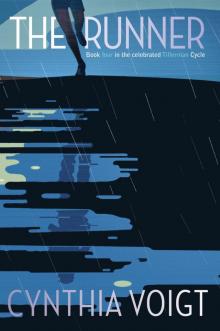 The Runner
The Runner By Any Name
By Any Name Bad Girls, Bad Girls, Whatcha Gonna Do?
Bad Girls, Bad Girls, Whatcha Gonna Do?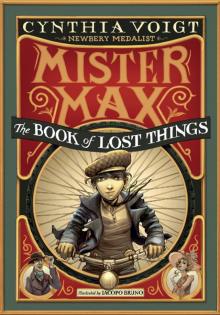 Mister Max: The Book of Lost Things: Mister Max 1
Mister Max: The Book of Lost Things: Mister Max 1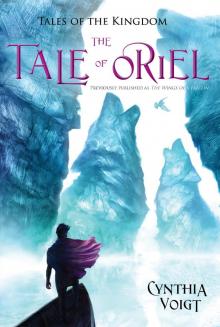 The Wings of a Falcon
The Wings of a Falcon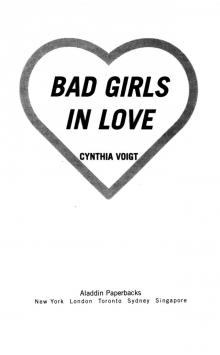 Bad Girls in Love
Bad Girls in Love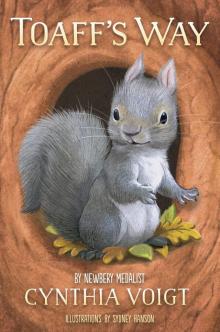 Toaff's Way
Toaff's Way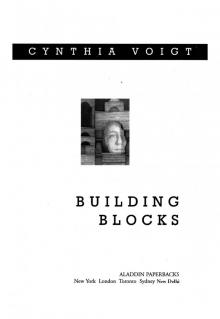 Building Blocks
Building Blocks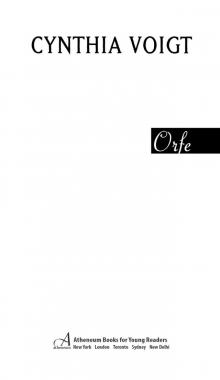 Orfe
Orfe Tell Me if the Lovers Are Losers
Tell Me if the Lovers Are Losers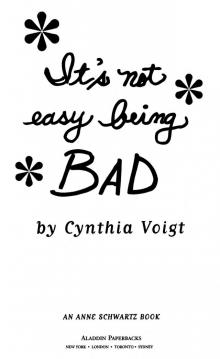 It's Not Easy Being Bad
It's Not Easy Being Bad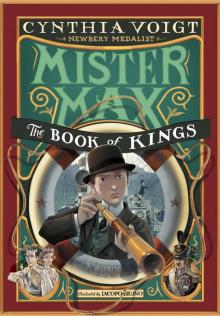 The Book of Kings
The Book of Kings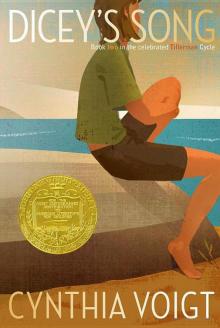 Dicey's Song
Dicey's Song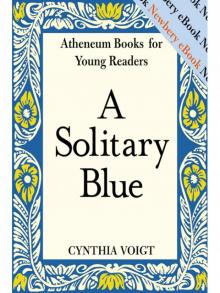 A Solitary Blue
A Solitary Blue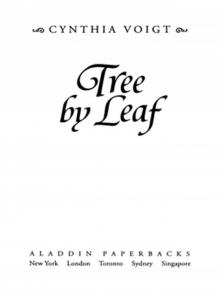 Tree by Leaf
Tree by Leaf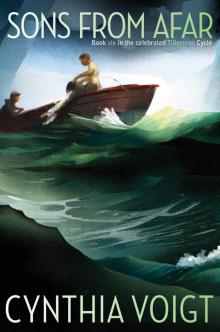 Sons From Afar
Sons From Afar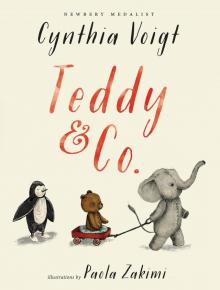 Teddy & Co.
Teddy & Co. Jackaroo
Jackaroo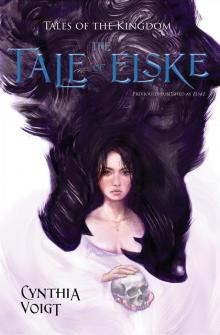 Elske
Elske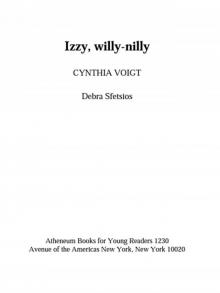 Izzy, Willy-Nilly
Izzy, Willy-Nilly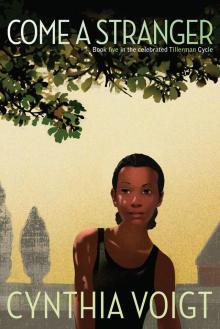 Come a Stranger
Come a Stranger Mister Max: The Book of Secrets: Mister Max 2
Mister Max: The Book of Secrets: Mister Max 2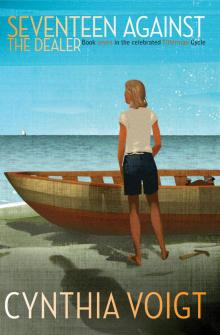 Seventeen Against the Dealer
Seventeen Against the Dealer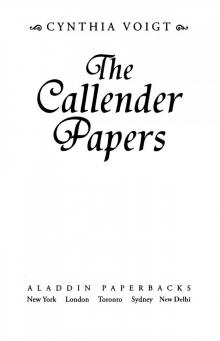 The Callender Papers
The Callender Papers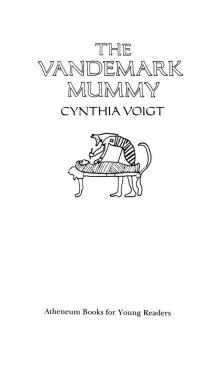 The Vandemark Mummy
The Vandemark Mummy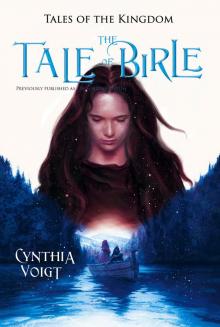 Tale of Birle
Tale of Birle Glass Mountain
Glass Mountain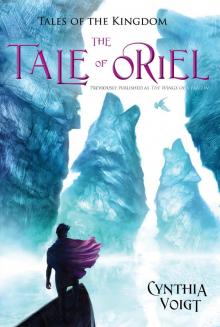 The Tale of Oriel
The Tale of Oriel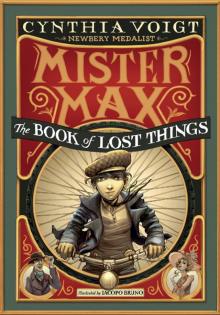 The Book of Lost Things
The Book of Lost Things The Book of Secrets
The Book of Secrets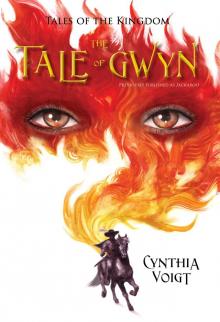 Tale of Gwyn
Tale of Gwyn